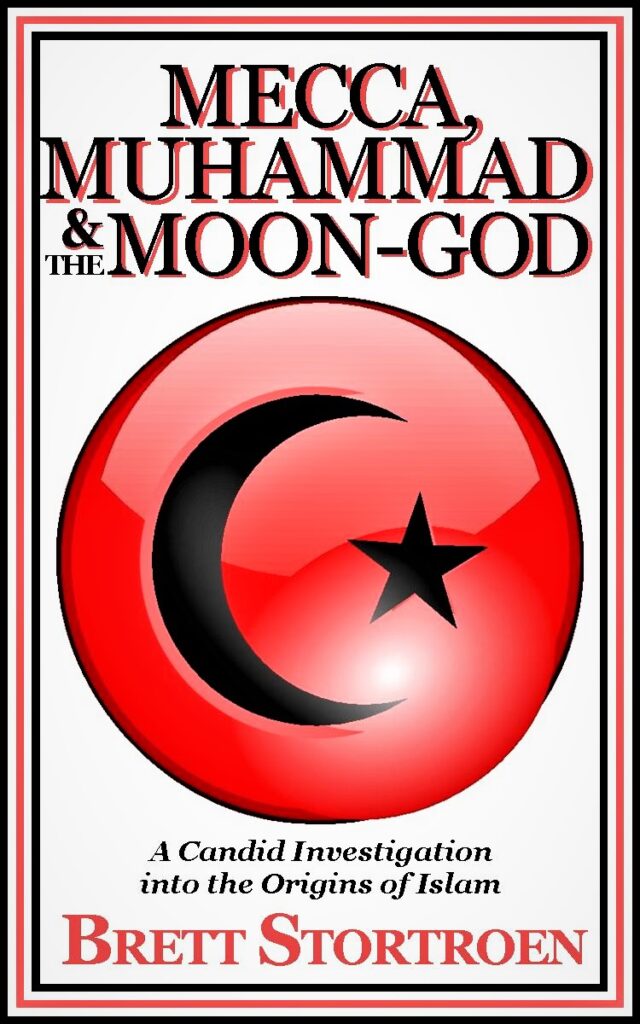Muhammad’s low opinion of women even includes their final judgment and destiny. The Hadith states:
The prophet said: I saw Paradise and stretched my hands towards a bunch (of its fruit) and had I taken it, you would have eaten from it as long as the world remains. I also saw the hell-fire and I have never seen such a horrible sight. I saw that most of the inhabitants were women. The people asked: O Allah’s Apostle! Why is it so? The prophet said: They are ungrateful to their companions of life (husbands) and ungrateful to good deeds. If you are benevolent to one of them throughout the life and if she sees anything (undesirable) in you, she will say: I have never had any good from you.[9]
Apparently, Muhammad’s personal life colored his view of women so negatively that he prophesied their destined future to an eternal hell. Another account from the Hadith elaborates further:
Once Allah’s Apostle went out to the place of prayer he passed by the Id-al-Adha or Al-Fitr prayer. Then he passed by the women and said: O women! Give charity, as I have seen that the majority of the dwellers of Hell-fire were you (women). They asked: Why is it so, O Allah’s Apostle? He said: You curse frequently and are ungrateful to your husbands. I have not seen anyone more deficient in intelligence and religion than you. A cautious sensible man could be led astray by some of you. The women asked: O Allah’s Apostle! What is deficient in our intelligence and religion? He said: This is the deficiency in your intelligence. Isn’t it true that a woman can neither pray nor fast during her menses? The woman replied in the affirmative: This is the deficiency in your religion.[10]
Muhammad believed a natural biological function of a woman’s body affected her intelligence and her faith. His own bitter feelings towards his wives and women, in general, had relegated Muslim women to the level of animals and even dirt (soil to be tilled). Muhammad, by his own words, prophesied damnation in hell for the greater part of most women, and not excluding mothers.
Would any sensible woman follow a prophet who viewed females in such a way? What would the benefits be in such a religion if you were destined for hell anyway? Any woman submitting herself to such derogation is doomed for mental and physical humiliation. Once entrapped within this Islamic communal system the woman displays symptoms of what psychologists refer to as the Stockholm syndrome; a term describing how hostages begin to express empathy and attachment towards their captors, even to the point of defending them. Many of those ensnared in manipulative and abusive cults exhibit similar irrational feelings of bonding with their so-called prophets and gurus.
CELESTIAL NYMPHS OF PARADISE
As Muhammad engaged in holy war or looting raids, he would meticulously promise an appealing sensual Paradise to those who died in battle or for those who stood firm in their allegiance to the prophet. This Paradise includes the Persian legends of the hurs (houris), “mentioned four times in (Qur’an 52:20, 56:22, 55:72, 44:54), literally means having eyes with marked contrast of black and white [al-hur al-ayn].”[11] They are alluded to in other suras:
Even so (it will be). And we shall wed them unto fair ones with wide, lovely eyes. . . . Therein are those of modest gaze, whom neither man nor jinni will have touched before them, Fair ones, close guarded in pavilions. . . . Reclining on green cushions and fair carpets (Qur’an 44:54, 55:56-76).
Logically, since most women are destined for hell, Muhammad had to find a source of women for Paradise to appease his men; thus, he borrowed the Persian legends of the celestial hurs (possibly etymologically linked to the word ‘whore’ in English). In the hereafter, these nymphs were created specifically for the eternal sexual pleasure of Muslim men. The Hadith described the pavilions where the hurs were held:
Allah’s Apostle said: In Paradise there is a pavilion made of a single hollow pearl! Sixty miles wide, in each corner of which there are wives who will not see those in the other corners; and the believers will visit and enjoy them.[12]
While some hadiths have no limits, others place the number of wives (hurs) to two.[13] The hurs are described in detail from the Hadith:
Each of whom will be so beautiful, pure and transparent that the marrow of the bones of their legs will be seen through the flesh . . . and will never fall ill, and they will neither blow their noses, nor spit . . . and their sweat will smell like musk.[14]
Other traditions have mentioned that they need no sleep nor do they become pregnant. Muslim preachers, scholars, and Jihad warriors are obsessed with thoughts of sex in the afterlife. One of Egypt’s most prestigious preachers, Abdel Hamid Kishk, expounded his theology concerning the “youths” mentioned in the Qur’an: “Muslims who entered paradise would enjoy eternal erections and the company of young boys draped in earrings and necklaces.”[15] One of Islam’s most respected religious schools, the al-Azhar University, only slightly disagreed. They maintained that “men in paradise would have erections, but merely protracted, not perpetual. Other experts disputed the possibility of pederasty in paradise.”[16]
Muslims hold to the belief that indulging in alcohol, adultery, fornication, and homosexuality are taboo on earth; yet, once they enter Paradise, they are allowed to indulge in such carnalities. The teachings of Muhammad and his moon-god Allah completely oppose the Judaic Torah and Christian principles of holiness in the New Testament. Apparently, Muhammad’s revelations originated from another source other than the Lord Yahveh.
The biblical vision of heaven differs considerably from the version of the Muslim’s Paradise. Islamic orthodoxy claims to have accepted the Pentateuch, Psalms, and the Gospels as valid revelations. Conveniently, whenever the Qur’an differs, it takes precedence over the Holy Bible. To the contrary, Jesus (Yahsu), announces to the religious leaders of his day, “For in the resurrection they neither marry nor are given in marriage, but are as the angels of God in heaven” (Mt. 22:30). This most likely implies that the glorified bodies of those resurrected have no sexual passion; so, there appears to be no reason for sexual nymphs or youths to gratify the flesh.
Once again, Muhammad contradicts the teachings of Yahsu and substitutes his own imagination against the Holy Tanach and the New Testament tenets. To the natural and carnal-minded man, Muhammad’s path seems appealing, but the veracity of his teachings remains highly suspect and irregular. According to Muhammad’s own statements, women on earth, including mothers and sisters, have virtually no chance of avoiding hell. On account of Muhammad’s bigoted concept and depiction of women as animals and soil; he has promulgated a lack of admiration and respect for women as individuals and womanhood in general.
For the Muslim woman, the choice of whether to follow Yahsu or Muhammad’s Allah, seems quite obvious to an objective individual. What rational woman would choose certain damnation for their destiny? The Muslim woman may wish to look to Jesus (Yahsu) for salvation. The Bible declares, “For whosoever shall call upon the name of the Lord shall be saved” (Rom. 10:13). However, for a woman to convert out of Islam poses a serious challenge due to the imminent threats she will face in the form of beatings, mutilation, banishment from family, and often execution. This is also an opportunity for the Christian community to provide a means for these women to follow through on their desires to follow Christ and live without fear.
From Chapter 10 of Mecca, Muhammad & the Origins of Islam: A Candid Investigation Into the Origins of Islam.
[9] al-Boukhari, Hadith, vol. 2, no. 1052:64; vol. 7, no. 5197-98:51-2.
[10] al-Boukhari, Hadith, vol. 1, no. 304:111-12; vol. 2, no. 1462:202.
[11] Jane Idleman Smith and Yvonne Yazbeck Haddad, The Islamic Understanding of Death and Resurrection (Albany: State University of New York Press, 1981), 164.
[12] al-Boukhari, Hadith, vol. 6, no. 4879:218; vol. 4, no. 3243:197.
[13] al-Boukhari, Hadith, vol. 4, no. 3245-46:197-98.
[14] Ibid., 3246:198.
[15] Judith Miller, God Has Ninety-Nine Names: Reporting From A Militant Middle East (N.Y.: Simon and Schuster Inc., 1996), 26.
[16] Ibid.


Most Women sent to Hell & Celestial Nymphs in Paradise by Brett Stortroen is licensed under a Creative Commons Attribution-NonCommercial 3.0 Unported License.






